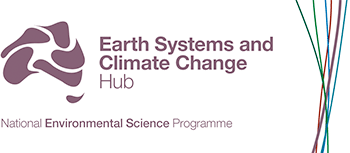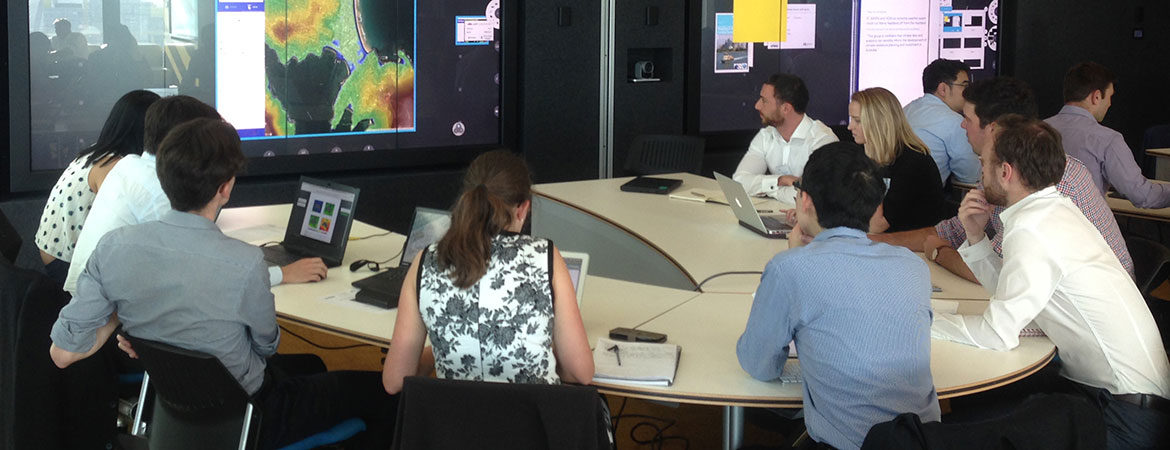16 October 2017
Last week, early career climate researchers from the Hub and the Centre of Excellence for Climate Extremes at the University of New South Wales joined actuaries, data analysts, sustainability managers and climate risk managers at a workshop in Sydney hosted by KPMG Actuaries to consider the relevant societal risks associated with a hypothetical climate event: what would be the social and financial impact if an extreme weather event physically cut Manly headland off from the mainland due to combined effects of flooding and storm surge?
While the ‘Manly Island’ scenario was the topic of discussion, it was simply a catalyst for the primary objective of the workshop, to bring together young risk management professionals and climate scientists.
Building important networks
The workshop was conceived by the Hub Stakeholder Advisory Group (HSAG), which helps ensure the relevance of the Hub’s research to the wider community. HSAG Chair, Dr Nick Wood, believes events such as this are critical for building essential professional networks.
“Young climate scientists will be responsible for providing the essential understanding of future climate risks and the young professionals in banking, insurance, legal and the public sector will be responsible for applying that knowledge to manage the financial risks from a changing climate,” he explained.
“By holding these events, where young researchers and risk analysts work together to assess possible climate risks, we’re aiming to raise awareness and establish key networks and relationships that will set these young professionals in good stead for the future.”
Identifying gaps and opportunities
Workshop discussions ranged from identifying the weather systems that could lead to the ‘Manly Island’ scenario and the information that would be needed to properly assess the risks, through to how the insurance and research communities can better work together on these kinds of problems.
The growing need for climate change services was clear, with ready availability and accessibility of science-based climate change data and information central to assessing ‘Manly Island’-type risks. This data needs to be in a format that non-specialists can easily access, understand and use – a significant but essential task for data providers, given the range of data and information needs and timescales used by different industries.
Discussions also identified the importance of complementary non-climate (socio-economic) information for climate change risk assessments, particularly economic estimates of climate-related loss and damage and social licence to implement adaptation interventions to moderate risk.
Participants identified possible opportunities to work together to begin meeting some of these needs. As well as maintaining and building the networks forged at the workshop, more formal collaborations and opportunities, such as through Australian Research Council linkage grants and shared projects, were considered.
More opportunities for understanding
This event facilitated the establishment of new professional contacts and perhaps future working relationships, which will become increasingly important as the careers of the workshop participants progress and they are called on to deal with the impacts of our changing climate.
The increased awareness and understanding of the information needs and constraints involved in both the provision and use of climate change data and information can only serve to enhance the use of climate change science in decision making and encourage the pursuit of new knowledge from both ends of the decision-making spectrum.
Based on the success of this event, and the Hub’s commitment to using our understanding of Australia’s past, present and future climate to supply useful and accessible climate data and information for Australia, this is likely to be the first of many similar workshops to be co-hosted by the Hub and its various stakeholders within both the public and private sector.

